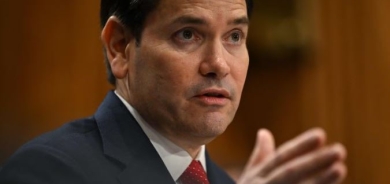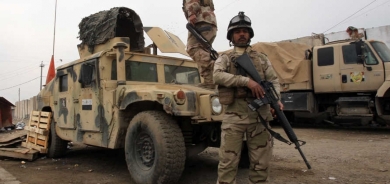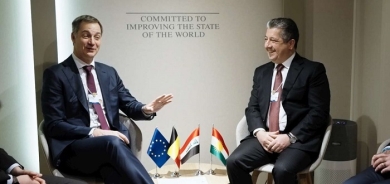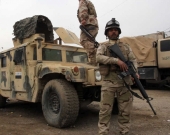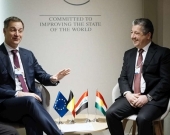Trenches around Kurdistan Borders Against War, Terrorism

"We have drafted a plan to build a defensive position along the borders of the Kurdistan Region in areas that are under the control of Peshmerga forces,” said Brigadier General Halgurd Hikmat, media director of the Peshmerga ministry. He said the trenches would be three meters wide.
After the turmoil in Iraq began more than a month ago -- following lightning advances by jihadi-led insurgents and a retreat by Iraqi forces -- the KRG deployed Peshmerga forces into Kurdish-populated areas outside its formal control, including the oil-rich city of Kirkuk.
Erbil has been unequivocal in declaring that those forces will not withdraw, effectively taking over so-called “disputed territories” and widening KRG borders by 40 percent.
Hikmat said the trenches were being dug in Mosul, Shengal, Zumar and Kirkuk, and will also include Diyala province, where the digging is more challenging because two towns there are still in IS hands.
"We have issues only in Sadiyah and Jalawla,” Hikmat said, adding that trenches there are planned but the location undecided.
Since there are no natural barriers in the flat lands between the Kurdistan Region and jihadi-held territories, authorities hope the trenches will act as barriers against trouble and turmoil.
"The terrorists’ are expected to use vehicles in their drive,” Hikmat said. “This will stop their infiltration into the Kurdistan Region. Most importantly, they will not be able to come into the Kurdistan Region with car bombs."
“The trench is a shield,” Hikmat explained, saying Peshmerga forces stationed along them would be the real line of defense.
In the wake of deadly bombings in Erbil in 2005, the KRG built a trench in areas south and west of the capital as a barrier against car bombs. Apart from rare terrorist attacks, the trench has been largely effective in preventing car bombing in Kurdistan.
Rudaw


